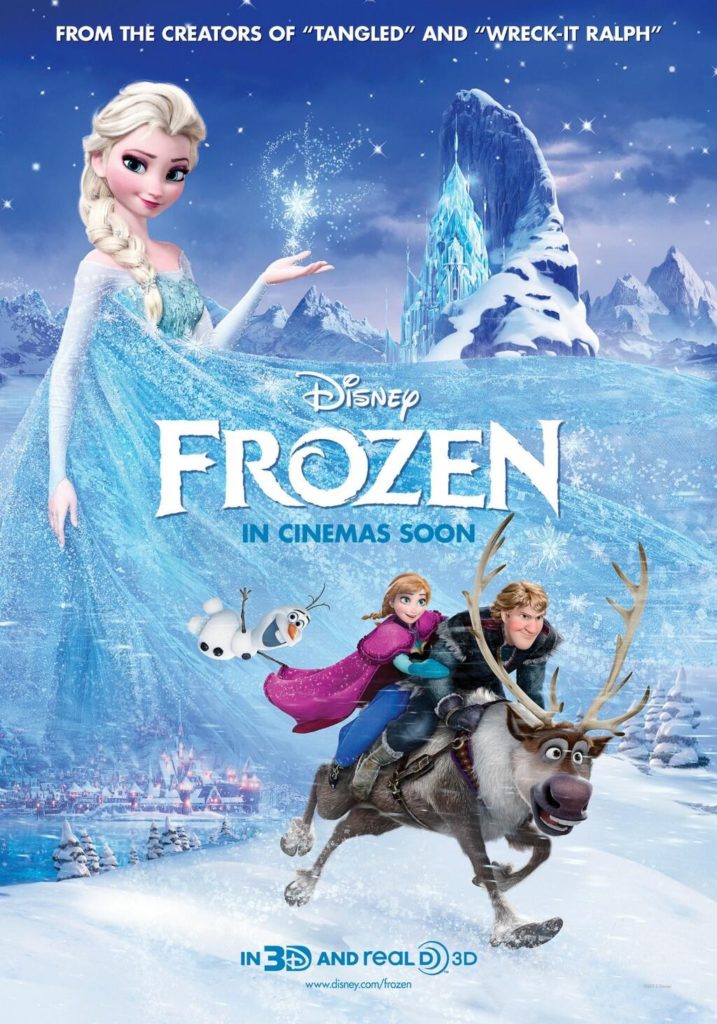Mohler Fails To Warm To ‘Frozen’
It was mostly good stuff from Southern Baptist Theological Seminary President Al Mohler tonight1 — about Christian engagement with culture, flawed reactions, and especially superficial views of culture.
Then Mohler broached the name and topic of the Disney film Frozen.
 Christian fans may say, “Yay! it’s a Christian story.”2 But the film can’t match the original Hans Christian Anderson fairy tale, the SBC leader said. After all, in the original Hans Christian Anderson fairy tale, the two children are saved by reciting The Lord’s Prayer.
Christian fans may say, “Yay! it’s a Christian story.”2 But the film can’t match the original Hans Christian Anderson fairy tale, the SBC leader said. After all, in the original Hans Christian Anderson fairy tale, the two children are saved by reciting The Lord’s Prayer.
Of course the Disney version changed this part of the story, Mohler continued.
So it’s not a Christian story, it’s a “pagan” one, he said.
This is fine if we understand “pagan” to mean simply a non-Christian Thing that can still reflect God’s common grace — which in Frozen‘s case includes artistic excellence, human-spirit recognizing comedy, catchy songs, and a theme of self-sacrifice.
But that’s not how Mohler’s listeners would understand the term. Nor did this gentler, common grace-based definition match Mohler’s chilly dismissal.
- At High Pointe Baptist Church in Austin, Tx. ↩
- The phrase is mine, not Mohler’s, and does bear some thoughtful re-evaluation. I attempted this here. ↩





























I wouldn’t call Frozen pagan. I wouldn’t call it Christian, either.
It’s non-Christian, but it is not anti-Christian — the theme of one sacrificing herself for love of another, plus the danger of “Let It Go” can’t be denied. Whether it’s pagan or not is a matter of opinion. “Pagan” is pretty broad, you know. Good Post!
As a followup, calling the film “pagan” is a good example of the inability or unwillingness of some to make the step that the world of Frozen is either an alternate earth or a different world entirely. My leaning is toward the latter. There are nods to medieval Norway, but this isn’t the Norway we know, because other countries are mentioned that nobody in this world ever heard of. I presume the problem is with “magic” of course. But this is a different world, where different laws may apply. The Snow Queen was “born” with this power, the way some are born with a gift for music or for administration. I sure wish naysayers could make this step. It’s a different world, like Narnia, like Middle-earth.
It’s actually the same world as “Tangled” — there’s an easter egg in there of Rapunzel and Flynn walking into the palace.
I’ve not read the original story for ages, so I don’t know if his description of it is accurate. But if indeed the children are “saved by reciting The Lord’s Prayer” this doesn’t sound very Christian either! The Lord’s parayer is supposed to represent us talking with our father, not a magic incantation to recite.
According to my wife, yes, it was said as more of an incantation — in only one version of the original “The Snow Queen” fairy tale. I also wonder how that is not “pagan.: 🙂
A story that includes no mention of God or overtly religious elements, yet presents a wholly Biblical view of self-sacrificial love, is unavoidably a more-Christian story than a story that hijacks religious elements to use as moralism or incantations.
In the version of “The Snow Queen” I read Kay was set free because Gerta loved him enough to spend her childhood chasing him. Kay was to spell out the word “love” form slivers of ice, but couldn’t, it was only the entrance of Gerta that enchanted the ice and made it spell “love”. It had nothing to do with the Lord’s Prayer, but that strikes me as something Anderson would have done, he was a very devout man.